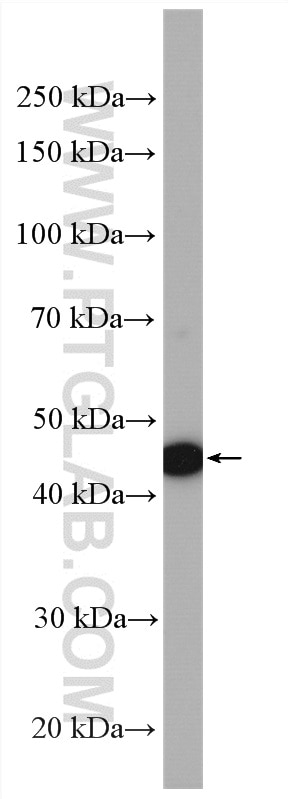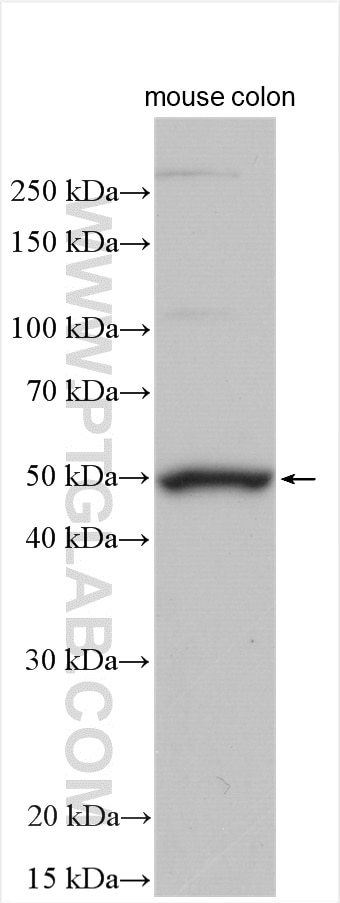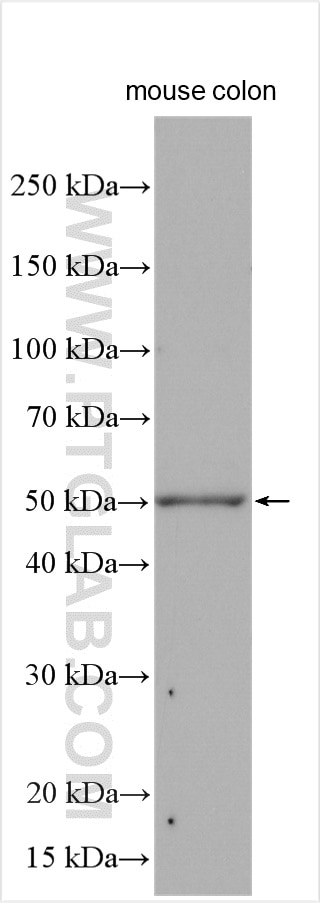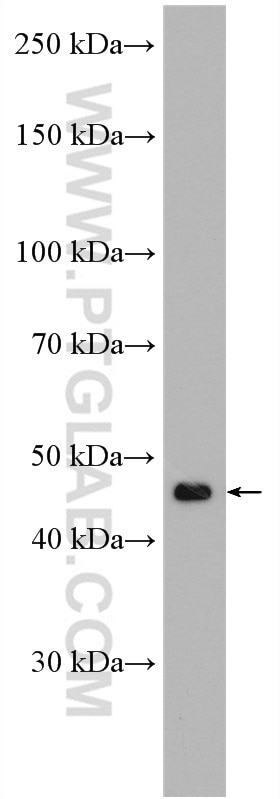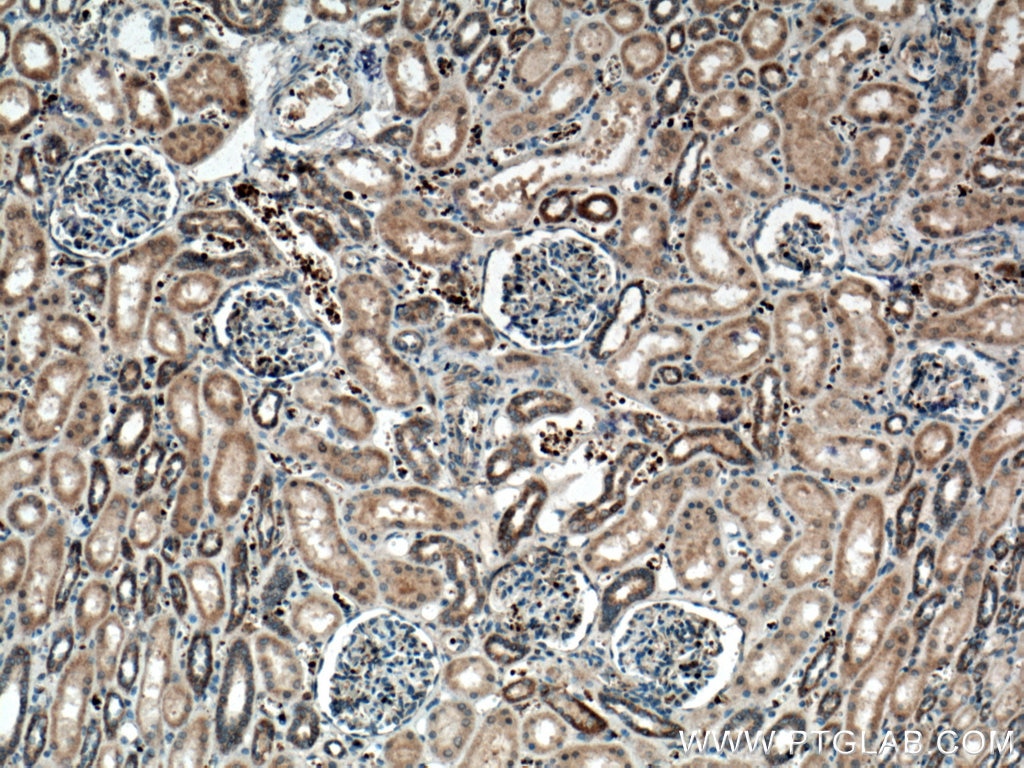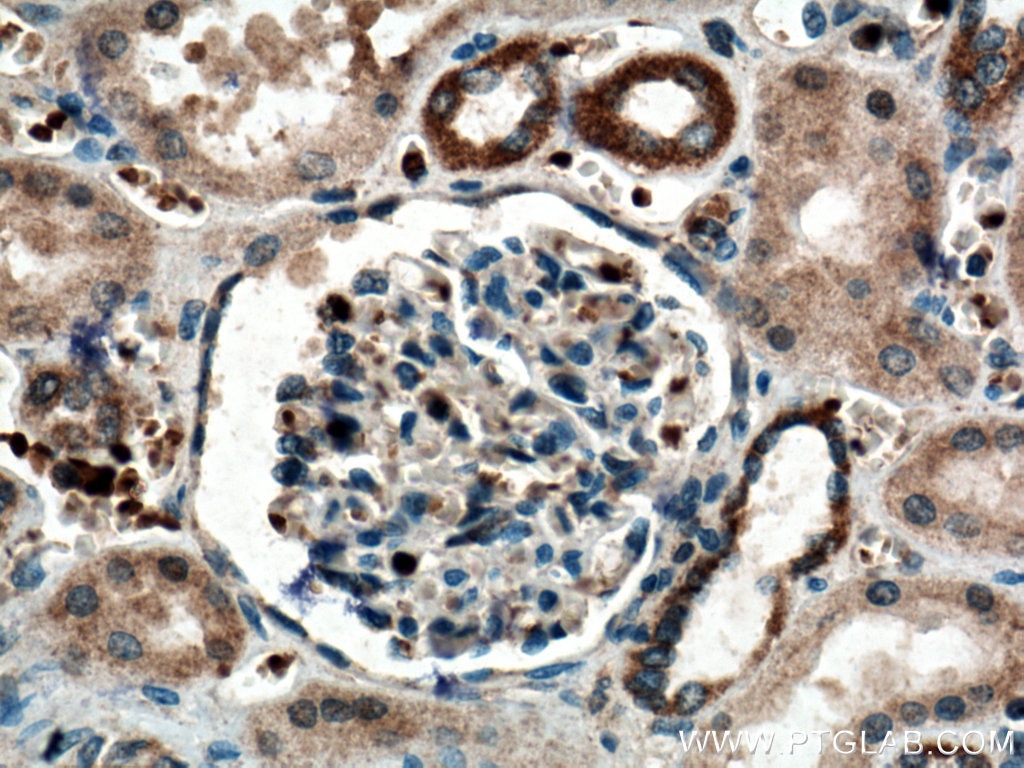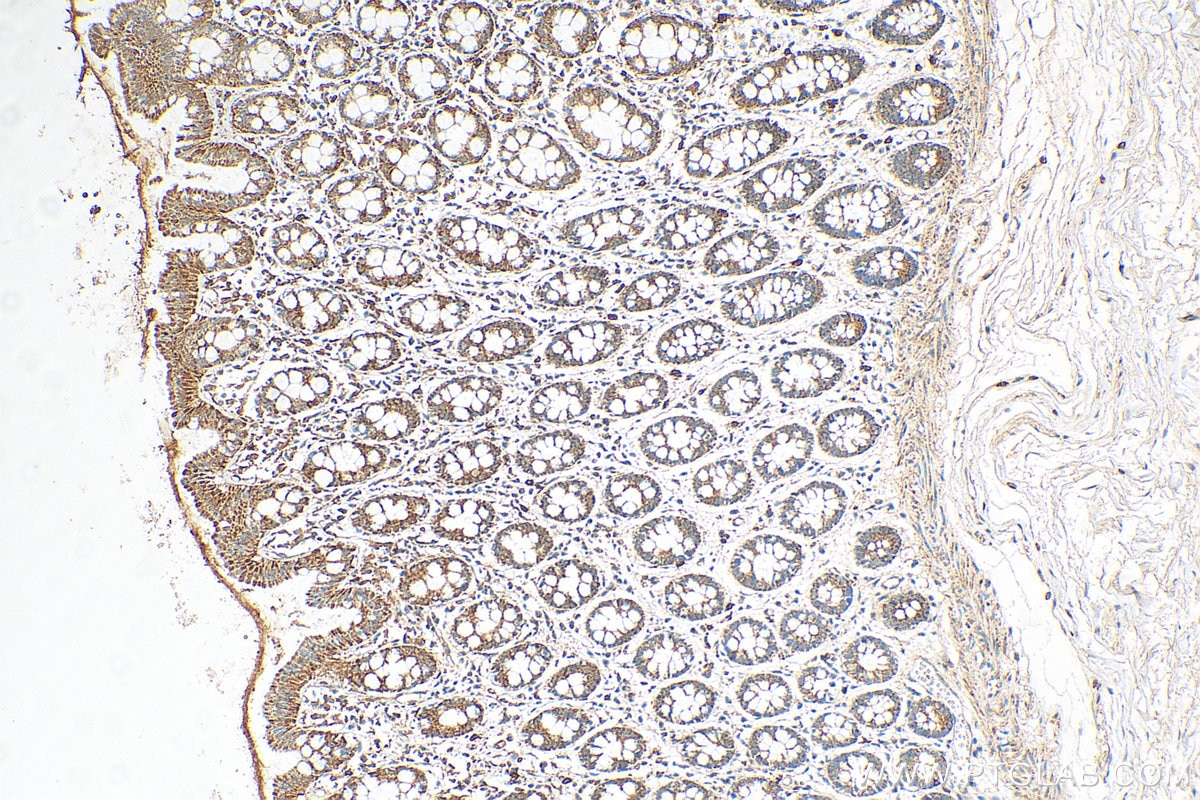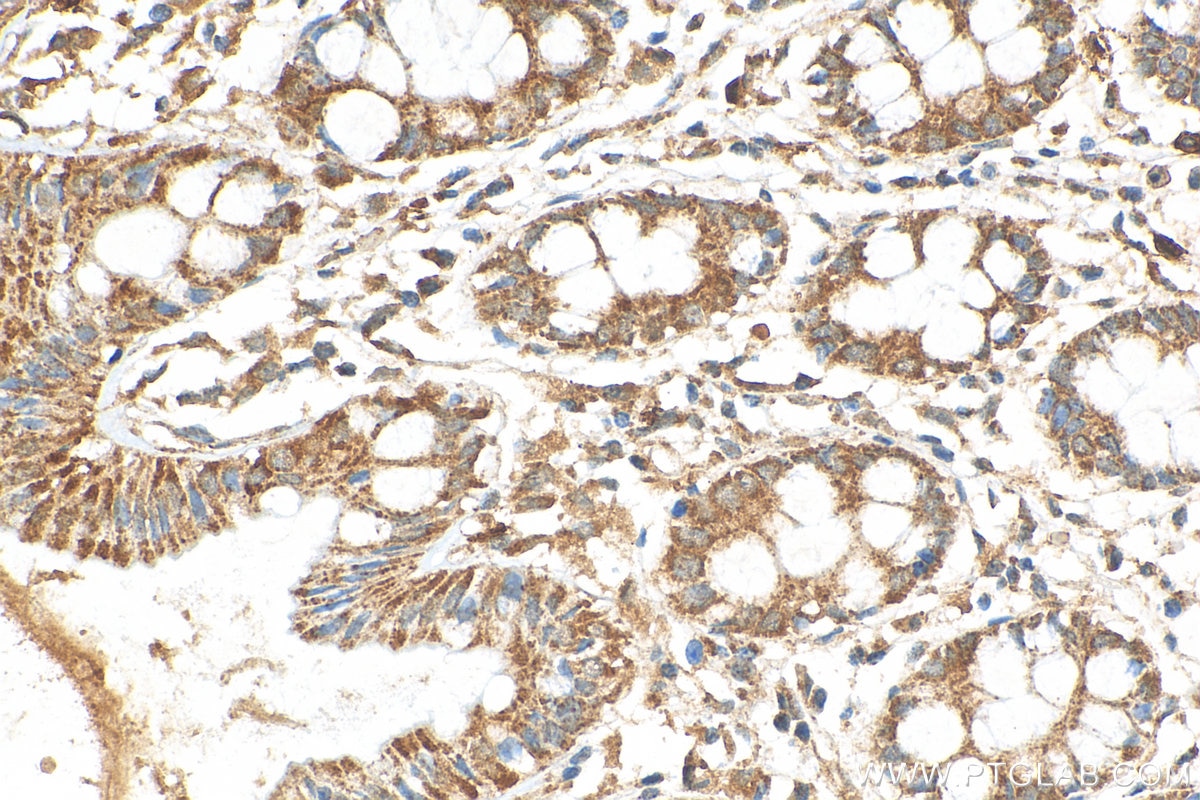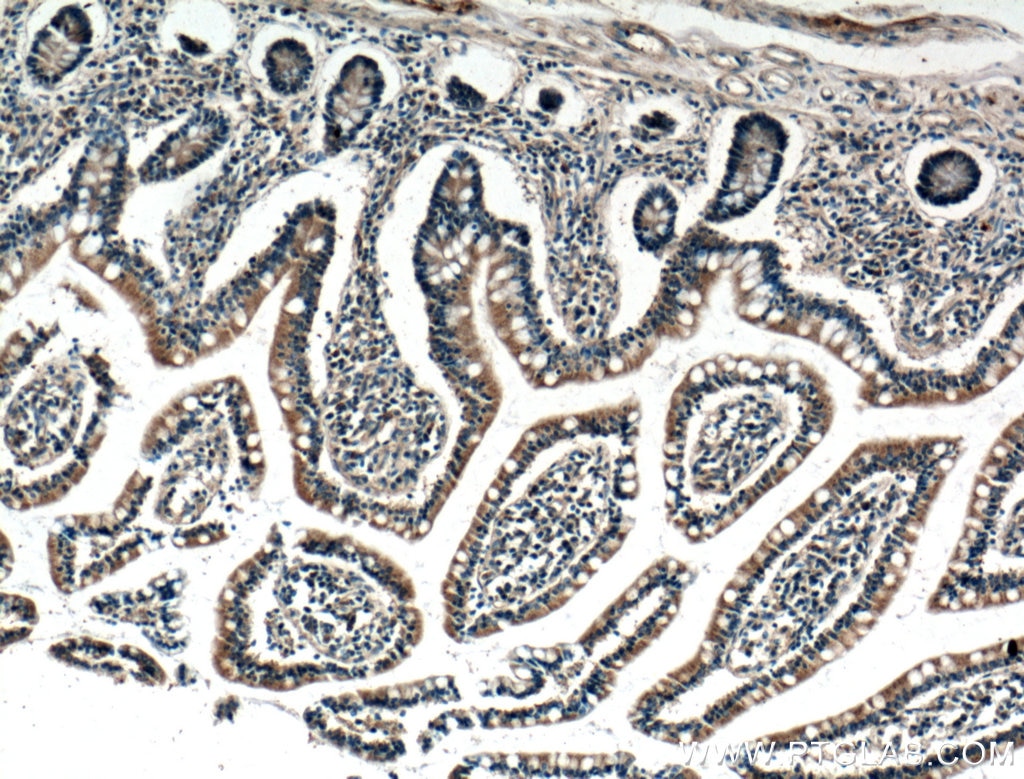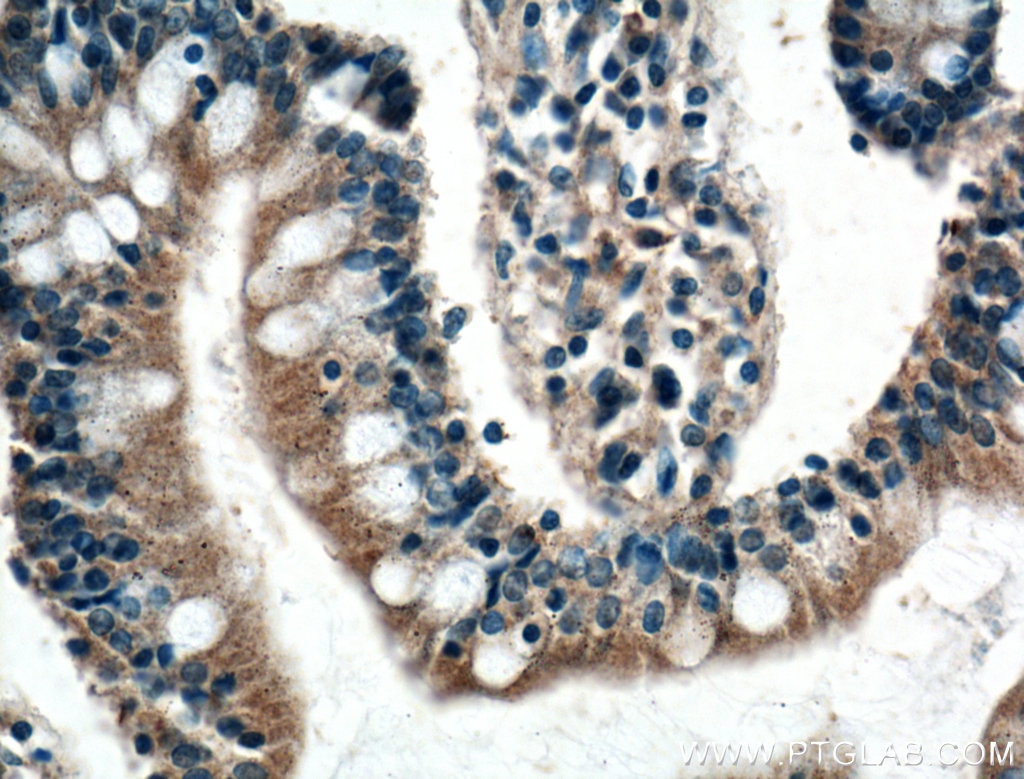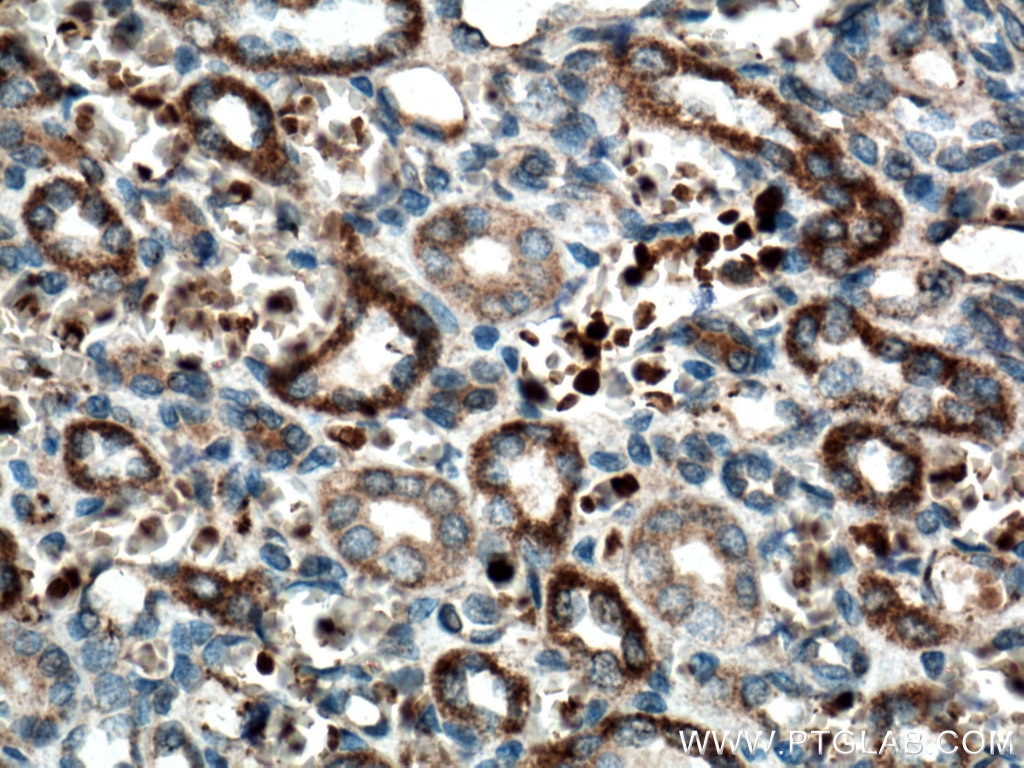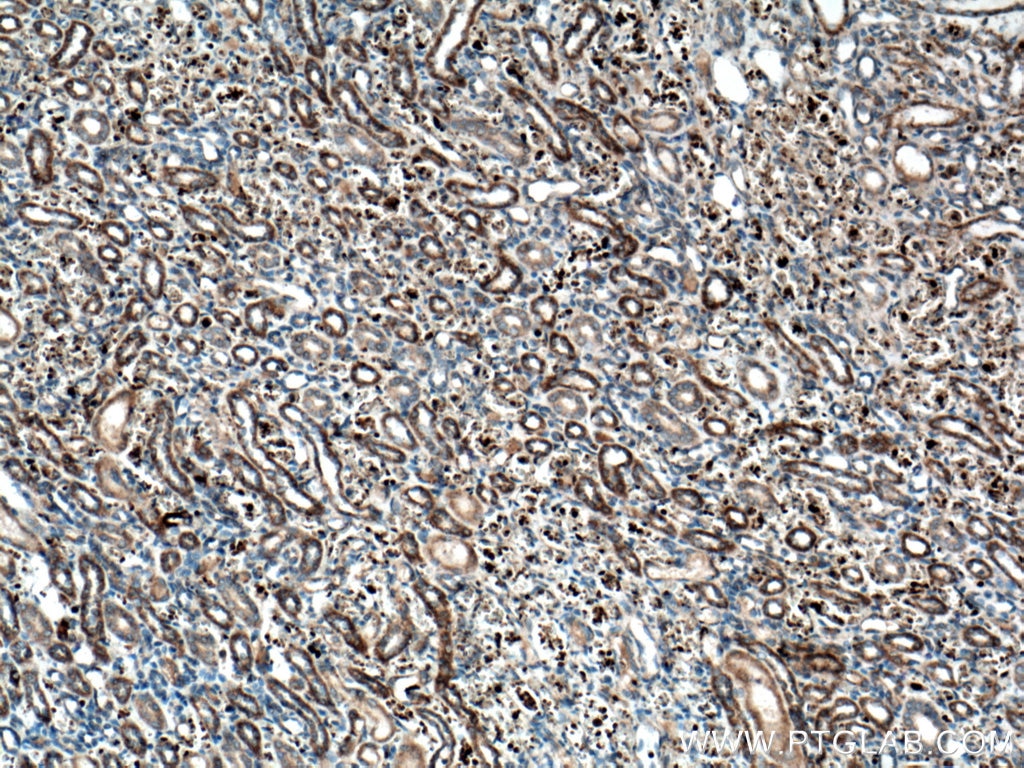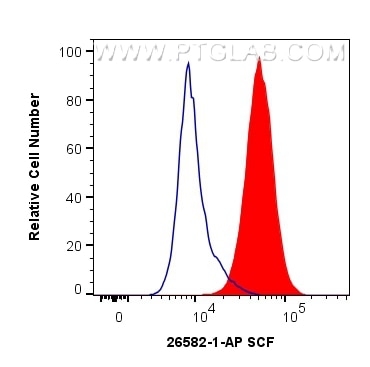- Featured Product
- KD/KO Validated
SCF Polyklonaler Antikörper
SCF Polyklonal Antikörper für WB, IHC, FC (Intra), ELISA
Wirt / Isotyp
Kaninchen / IgG
Getestete Reaktivität
human, Maus, Ratte
Anwendung
WB, IHC, FC (Intra), ELISA
Konjugation
Unkonjugiert
Kat-Nr. : 26582-1-AP
Synonyme
Geprüfte Anwendungen
| Erfolgreiche Detektion in WB | PC-12-Zellen, Maus-Kolongewebe, NIH/3T3-Zellen |
| Erfolgreiche Detektion in IHC | humanes Nierengewebe, humanes Kolongewebe, humanes Dünndarmgewebe Hinweis: Antigendemaskierung mit TE-Puffer pH 9,0 empfohlen. (*) Wahlweise kann die Antigendemaskierung auch mit Citratpuffer pH 6,0 erfolgen. |
| Erfolgreiche Detektion in FC (Intra) | MCF-7-Zellen |
Empfohlene Verdünnung
| Anwendung | Verdünnung |
|---|---|
| Western Blot (WB) | WB : 1:500-1:1000 |
| Immunhistochemie (IHC) | IHC : 1:50-1:500 |
| Durchflusszytometrie (FC) (INTRA) | FC (INTRA) : 0.40 ug per 10^6 cells in a 100 µl suspension |
| It is recommended that this reagent should be titrated in each testing system to obtain optimal results. | |
| Sample-dependent, check data in validation data gallery | |
Veröffentlichte Anwendungen
| KD/KO | See 1 publications below |
| WB | See 11 publications below |
| IHC | See 5 publications below |
Produktinformation
26582-1-AP bindet in WB, IHC, FC (Intra), ELISA SCF und zeigt Reaktivität mit human, Maus, Ratten
| Getestete Reaktivität | human, Maus, Ratte |
| In Publikationen genannte Reaktivität | human, Maus, Ratte |
| Wirt / Isotyp | Kaninchen / IgG |
| Klonalität | Polyklonal |
| Typ | Antikörper |
| Immunogen | SCF fusion protein Ag25075 |
| Vollständiger Name | KIT ligand |
| Berechnetes Molekulargewicht | 273 aa, 31 kDa |
| Beobachtetes Molekulargewicht | 30-45 kDa |
| GenBank-Zugangsnummer | BC074725 |
| Gene symbol | SCF |
| Gene ID (NCBI) | 4254 |
| Konjugation | Unkonjugiert |
| Form | Liquid |
| Reinigungsmethode | Antigen-Affinitätsreinigung |
| Lagerungspuffer | PBS with 0.02% sodium azide and 50% glycerol |
| Lagerungsbedingungen | Bei -20°C lagern. Nach dem Versand ein Jahr lang stabil Aliquotieren ist bei -20oC Lagerung nicht notwendig. 20ul Größen enthalten 0,1% BSA. |
Hintergrundinformationen
Stem cell factor (SCF) also known as mast cell growth factor, steel factor, and kit ligand, is a hematopoietic growth factor. SCF is a critical protein with key roles in the cell such as hematopoiesis, gametogenesis and melanogenesis. SCF activates multiple signal pathways by binding with c-kit receptor. SCF and its receptor, c-kit ligand (KL), are up-regulated in particular human malignancies including gastrointestinal stromal tumor (GISTs), breast cancer, hematopoietic cell, myeloid leukaemia, and glioma. The SCF/c-KIT system also plays a relevant role in cell fate decision, and its activity is widely known to control cell proliferation, differentiation, survival and apoptosis. SCF is a 35 to 45 kDa monomeric glycoprotein.
Protokolle
| PRODUKTSPEZIFISCHE PROTOKOLLE | |
|---|---|
| WB protocol for SCF antibody 26582-1-AP | Protokoll herunterladen |
| IHC protocol for SCF antibody 26582-1-AP | Protokoll herunterladenl |
| STANDARD-PROTOKOLLE | |
|---|---|
| Klicken Sie hier, um unsere Standardprotokolle anzuzeigen |
Publikationen
| Species | Application | Title |
|---|---|---|
Food Res Int Prunus persica (L.) Batsch blossom soluble dietary fiber synergia polyphenol improving loperamide-induced constipation in mice via regulating stem cell factor/C-kit, NF-κB signaling pathway and gut microbiota | ||
Int J Mol Sci Increase in Chymase-Positive Mast Cells in Recurrent Pleomorphic Adenoma and Carcinoma Ex Pleomorphic Adenoma of the Parotid Gland. | ||
Int J Mol Sci Increased Chymase-Positive Mast Cells in High-Grade Mucoepidermoid Carcinoma of the Parotid Gland | ||
Am J Physiol Gastrointest Liver Physiol miR-128 participates in the pathogenesis of chronic constipation by regulating the p38α/M-CSF inflammatory signaling pathway. | ||
Exp Ther Med Arctiin alleviates functional constipation by enhancing intestinal motility in mice | ||
Thorac Cancer High expression of KITLG is a new hallmark activating the MAPK pathway in type A and AB thymoma.
|
